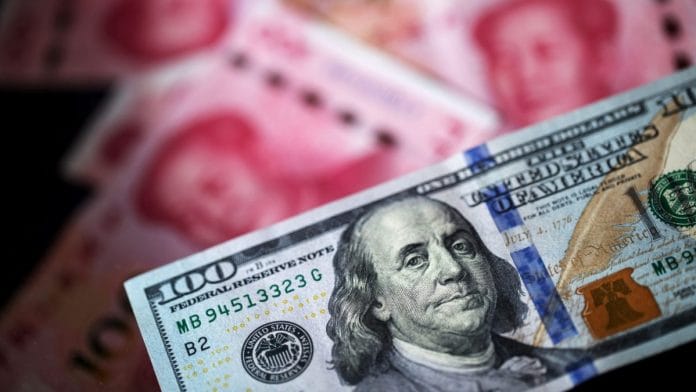Just over a year ago, InvestChile – the South American country’s Foreign Direct Investment Promotion Agency – welcomed 300 foreign investors of 21 nationalities in Santiago. In a two-day event, they attended plenaries, workshops and over 200 meetings, including with President Sebastián Piñera, advancing over US$7 billion in potential projects.
Fast-forward to today, and the view from Chile could not have changed more radically.
FDI roadshows in Santiago, and every other capital, are a picture of the past. InvestChile’s work shifted almost overnight: in confronting the emergency, priorities changed – from attracting FDI overseas – to deploying a crucial domestic effort to help international companies ensure their business continuity in Chile, and thus keeping the economy running.
This is not an isolated case. All over the world, foreign investors sail today without a compass in uncharted waters. The coronavirus pandemic is leaving not only desolation for the lives being lost, but also many questions about the post-coronavirus economy, such as how global investment flows will behave as the emergency clears.
Also read: There’s no ‘How to revive economy after Covid’ playbook. But Modi’s India can have an edge
Fall of FDI inflows
Among all the issues that matter right now, FDI should not be forgotten: it has historically been a barometer of health of international companies, and their ability to bring about global growth. With the current freezing over of foreign investments, a deeper economic recession is likely once the health emergency subsides.
Although there is a possible silver lining, as value investors may kickstart a virtuous cycle as soon as economies open again.
But the immediate news is bad. The UN’s trade and development arm (UNCTAD) recently revised its forecasts about the effects of Covid-19 on global FDI flows from a conservative -5 to -15 per cent drop, to a decisive -30 to -40 per cent contraction. Even without further downward revisions, those losses are potentially more dramatic than at any time in modern history.
The reference point, of course, is the financial crisis of 2007-08. In its immediate aftermath, FDI inflows fell by 37 per cent in 2009, down to US$1.1 trillion, and the Great Recession took hold. Today, at the onset of the pandemic, the virus has already wiped off some US$500 billion in foreign investment, and worse is, very likely, to come. That doesn’t bode well for what’s next.
Also read: Economists screwed up in 2008. Covid-19 gives them a shot at redemption
Nations with restrictions
Consider also a second indicator: protectionism. Already, the Covid-19 crisis is hitting at the high point of one of the fiercest trade wars on record, arguably since the Great Depression. And if a study by the University of St. Gallen about new export curbs on medical supplies – which today are costing lives directly – is any indicator, the crisis will lead to even more restrictions. By the end of the first quarter of 2020, 54 governments had introduced such curbs, the report found.
In one way, safeguarding makes perfect sense: the Covid-19 crisis has already wiped trillions of dollars off companies’ valuations. It may well be in a country’s best interest to put up temporary barriers on investment as a protective measure. Foreign acquisition bids otherwise may come up at a wholesale price in strategic and non-strategic sectors alike.
The first sign of this came from Australia, as the country announced the temporary tightening of conditions for entry of foreign investment, with a strengthened review process lasting between 30 days and six months. The goal was clear: “We do not want predatory behavior,” Treasurer Josh Frydenberg stated on public television.
Also read: How foreign development aid is being pocketed by elites in poor countries
Being the first mover
While such measures make short-term sense, the tricky part is not to make them stick once the health emergency subsides. If the global economy was in a Prisoner’s Dilemma, the clear optimal outcome would be to be collaborative and open borders as quickly as possible. But it’s also clear the ‘first mover’ may get the short end of the stick, if its initial openness isn’t reciprocated.
In the coming months, we will find out how much these measures and the prospect of deglobalisation is further impacting free flows of FDI, and if what we are seeing today in terms of restrictions is only the tip of the iceberg. But for now, and until we figure out the long-term impact of the pandemic on foreign investment, the only option – for host countries and investors alike – is to keep on navigating the storm and icebergs simultaneously.
As for InvestChile, their next investor conference will happen virtually, which is likely to become the new normal. And although governments today need to first and foremost work with established investors in keeping their projects afloat, the silver lining for Chile, and emerging markets alike, may reside in being early movers on the FDI attraction side as the emergency eases. In this new normal, the winners will be those that pioneer novel ways to help investors, in a world where prosperity is dependant on open economic borders.
Cristián Rodríguez-Chiffelle is the Executive Director of InvestChile. Peter Vanham is Head Writer at the World Economic Forum. They wrote this op-ed in their own name.
This article is part of the COVID Action Platform for Media, a coalition of over 20 media from around the world. The Platform aims to create meaningful and constructive content on the COVID pandemic, and syndicates it through its media partners.






